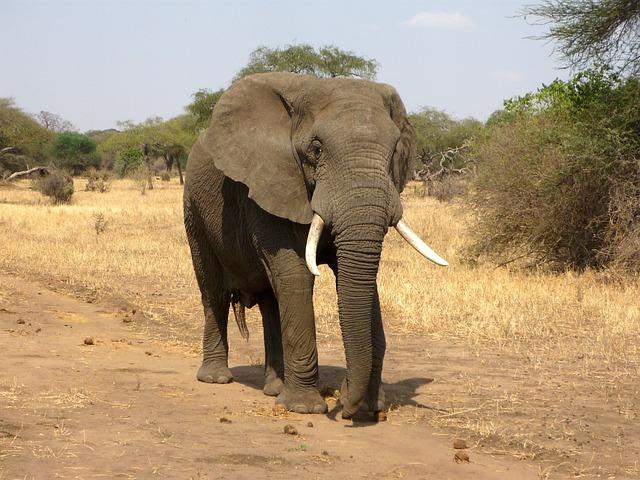In a critically important development for wildlife conservation in Ethiopia, African Parks has announced it has finalized a deal to manage Gambella National Park, a crucial habitat teeming with biodiversity.This partnership marks a pivotal step in the efforts to safeguard the park’s unique ecosystems while promoting sustainable tourism and community engagement. Gambella National Park, located in the western part of the country, is home to a variety of wildlife, including endangered species and migratory birds, making it an ecological treasure that has long been under threat from poaching and habitat degradation. The collaboration between African Parks and the Ethiopian government aims to restore the park’s natural heritage and enhance the livelihoods of local communities through responsible management practices. As conservation challenges mount globally, this initiative highlights the importance of strategic partnerships in preserving Africa’s irreplaceable natural landscapes.
African Parks Takes Charge of Gambella National Park in ethiopia
African Parks, a renowned non-profit organization dedicated to the conservation of protected areas across Africa, has officially taken over the management of Gambella National Park, one of Ethiopia’s most biologically rich but underutilized parks. This partnership with the Ethiopian government marks a significant milestone in an ongoing effort to enhance wildlife conservation and sustainable tourism in the region. With this new management framework, African Parks aims to restore the park’s diverse ecosystems and improve its infrastructure, ultimately generating economic opportunities for local communities. The initiative is expected to focus on key objectives including:
- Wildlife protection: Strengthening anti-poaching efforts and monitoring programs.
- Community engagement: Involving local populations in conservation activities and ecotourism development.
- Habitat restoration: Implementing strategies to rehabilitate degraded areas within the park.
The partnership represents a vision for a sustainable future in Ethiopia’s ecological landscape. Gambella National Park is home to several unique species, including the endangered Ethiopian wolf and large populations of antelope. To capitalize on this biodiversity, the management plan includes the establishment of effective training programs for park rangers and community members, along with the development of eco-friendly tourism facilities. the anticipated collaboration between local communities and park managers is expected to foster a culture of conservation, as both parties aim to recognize the intrinsic value of protecting their natural heritage while benefitting economically.

Strategic Implications for Conservation and Wildlife Management
The recent agreement for African Parks to manage Ethiopia’s Gambella National Park presents a multifaceted prospect to enhance conservation efforts in one of Africa’s most ecologically diverse regions.Through this partnership, strategic initiatives can be implemented that address both biodiversity preservation and community engagement. key implications include:
- Enhanced Biodiversity Conservation: With a specific focus on protecting endemic and endangered species,the management plan is highly likely to introduce measures that can mitigate habitat destruction and poaching.
- Community Involvement: By integrating local communities into wildlife management strategies, the project can foster sustainable development while ensuring that the livelihoods of residents are improved, reducing incentives for poaching.
- Research and Monitoring: Long-term data collection and monitoring systems will be essential in evaluating the effectiveness of conservation initiatives and adapting strategies based on ecological changes.
The management initiative is expected to have significant implications for regional wildlife governance, especially in establishing a framework for collaboration among government bodies, NGOs, and local communities. The table below illustrates potential ecosystem services that could be enhanced through effective park management:
| Ecosystem Service | Potential Benefits |
|---|---|
| Biodiversity Conservation | Preserves genetic diversity and supports species recovery programs. |
| Ecotourism Development | Encourages tourism that funds conservation and creates jobs. |
| Water Regulation | Maintains wetland health, which is vital for local water supplies. |

Community Engagement: The Key to sustainable Park Management
Engaging local communities in the management of natural parks is crucial for fostering a sense of ownership and responsibility towards their environment. By actively involving residents in decision-making processes, park management can facilitate sustainable practices that benefit both the ecosystem and the community’s well-being. Effective collaboration yields a variety of advantages, including:
- Resource Sharing: Local knowledge can inform conservation strategies that are better suited to the unique ecological and cultural contexts of the area.
- Economic Opportunities: Sustainable tourism and job creation through park initiatives can provide communities with financial incentives to protect their natural resources.
- Strengthened Relationships: Building trust between park authorities and local inhabitants encourages compliance with regulations and promotes conservation efforts.
Furthermore, collaboration can extend to educational programs that empower communities to engage in sustainable practices. Workshops and training sessions can provide invaluable skills in wildlife monitoring,forest management,and eco-friendly agriculture. This not only enhances community capacity but also aligns with broader conservation goals. the establishment of a Community Advisory Board in Gambella National Park, for example, may serve as a model for incorporating local perspectives in ongoing management strategies:
| Community Initiative | Objective | Expected Outcome |
|---|---|---|
| Wildlife Monitoring Programs | Involve locals in tracking wildlife populations | Improved data accuracy and poaching prevention |
| Ecotourism Development | Train community members as tour guides | Increased local income and awareness |
| Reforestation Projects | Engage youth in planting trees | Enhanced local biodiversity and climate resilience |

Economic Opportunities arising from Ecotourism Development
Ecotourism development in Gambella National Park opens avenues for sustainable economic growth, benefiting both the local communities and the environment. By promoting responsible travel, the region can harness its unique biodiversity and cultural heritage, attracting visitors who are keen to experience nature and engage with local traditions. Key economic opportunities include:
- Job Creation: Employment opportunities in hospitality, guiding, and conservation efforts can significantly reduce local poverty.
- Local Buisness Growth: Increased demand for artisan products and local cuisine can boost entrepreneurship.
- Infrastructure Development: Improved roads and facilities will enhance accessibility, benefiting local and national economies.
- Conservation Funding: Revenue from ecotourism can be redirected into preservation projects, ensuring the sustainability of both the park and its wildlife.
Additionally, partnerships with NGOs, government bodies, and businesses can create a holistic ecotourism model, fostering community engagement and education about the importance of preserving natural resources. The potential for attracting international investment is high as eco-conscious travelers increasingly seek authentic experiences that contribute positively to local ecosystems. A collaborative approach can ensure that benefits are shared equitably among stakeholders, thus embedding sustainability at the core of the region’s economic framework.

Challenges Ahead: Addressing Poaching and Habitat Loss
The management of Ethiopia’s gambella National Park presents significant challenges, particularly in combatting the dual threats of poaching and habitat loss. These activities not only diminish biodiversity but also disrupt the delicate balance of the ecosystem. The region is home to a variety of endangered species, including African elephants, hippos, and numerous bird species. To ensure the park’s sustainability, it is crucial to tackle these issues through:
- Enhanced Anti-Poaching Measures: Implementing strict patrols and surveillance to deter poachers.
- Community Engagement: involving local communities in conservation efforts to foster stewardship and provide alternative livelihoods.
- Habitat Restoration: Initiating projects aimed at restoring damaged ecosystems to support wildlife populations.
Addressing habitat loss necessitates strategic planning and collaboration with various stakeholders, including government agencies, NGOs, and local communities. Tracking land-use changes and understanding their implications are imperative for effective management. To support these initiatives, it is beneficial to develop data-driven strategies that include:
| Strategy | Description |
|---|---|
| Monitoring | Using technology to monitor wildlife populations and track poaching activities. |
| Education | Raising awareness about the importance of biodiversity and conservation among local communities. |
| Legal Framework | Strengthening laws and regulations to provide better protection for endangered species. |

Monitoring and Evaluation: Ensuring Long-term Success in Conservation Efforts
Monitoring and evaluation play a crucial role in the conservation landscape, especially in contexts like Gambella National Park, which is now under the stewardship of African Parks.Through systematic data collection and analysis, conservation efforts can be assessed for their effectiveness, allowing organizations to adapt strategies in response to challenges and changing circumstances. Key components of monitoring include:
- Baseline Assessments: Establishing initial conditions to measure progress.
- Regular Data Collection: Implementing ongoing checks on wildlife populations and habitat conditions.
- Stakeholder Engagement: Involving local communities and authorities in the evaluation process to ensure relevance and support.
By ensuring that long-term success is grounded in robust evaluation metrics, African Parks can foster adaptive management practices that lead to sustainable outcomes. The integration of modern technology, such as remote sensing and citizen science, enhances conventional methods, allowing for real-time feedback and more informed decision-making. Utilizing a structured framework for evaluation is essential, which can include:
| Evaluation Aspect | Methodology | Frequency |
|---|---|---|
| Wildlife population Surveys | Aerial and ground counts | Annually |
| habitat Assessment | Remote sensing analysis | Biannually |
| Community Feedback | Surveys and interviews | Seasonally |
The Conclusion
the recent agreement between African parks and the Ethiopian government marks a significant step toward the sustainable management of Gambella national Park, a region characterized by its rich biodiversity and unique ecosystems. As African parks embarks on this journey, the collaboration highlights the importance of protecting vital habitats and supporting local communities through responsible conservation practices. The successful implementation of this management plan will not only contribute to the preservation of the park’s natural heritage but also promote ecotourism and provide economic opportunities for the surrounding areas. As stakeholders closely monitor the outcomes of this partnership, it serves as a hopeful model for similar initiatives across the continent, underscoring the critical role of strategic collaborations in safeguarding Africa’s invaluable wildlife and natural resources.







